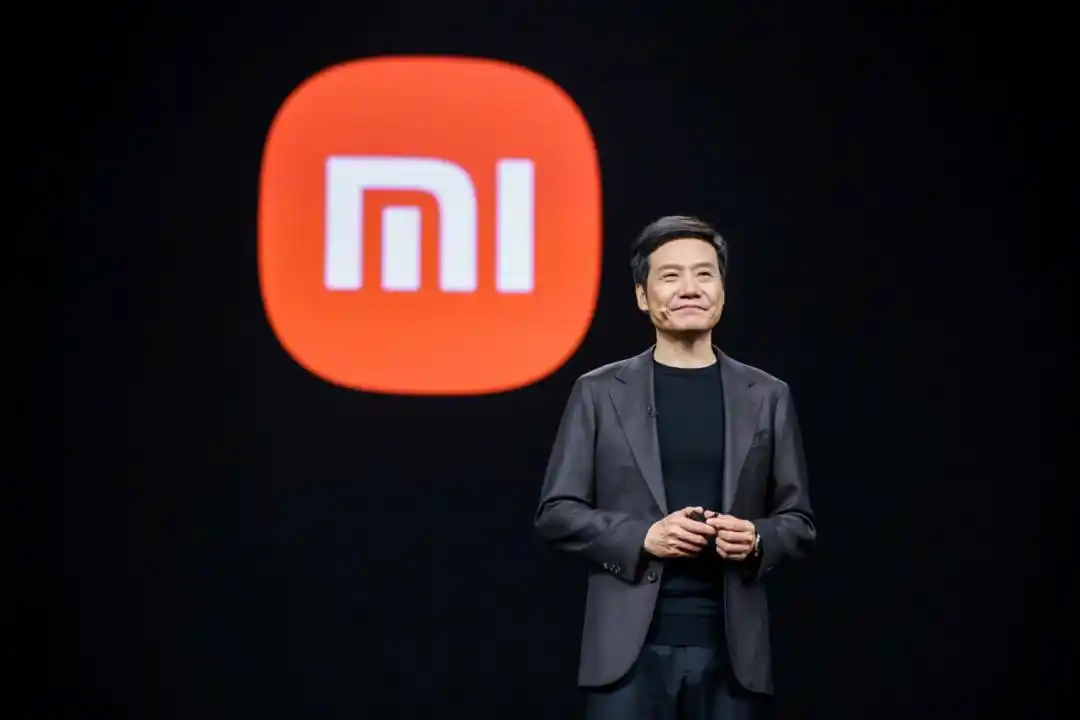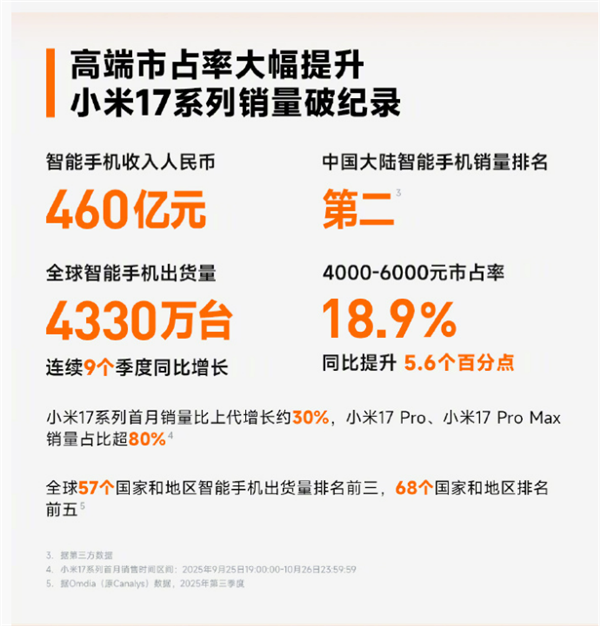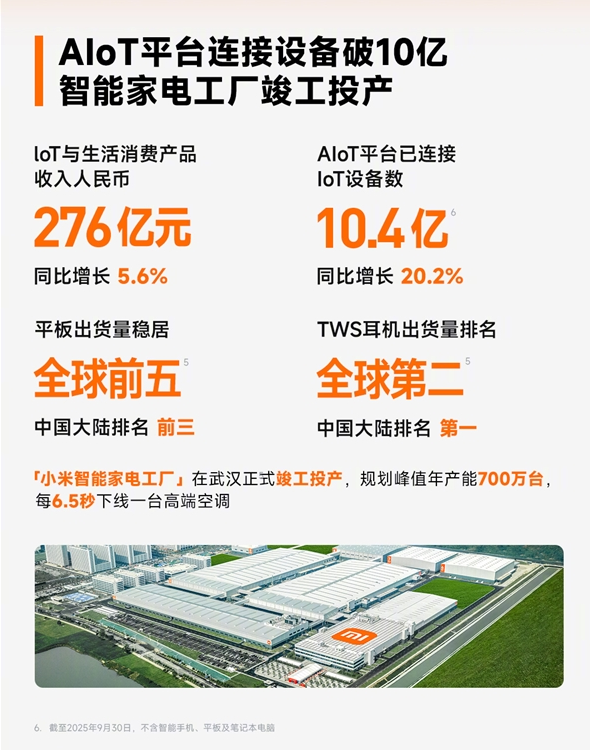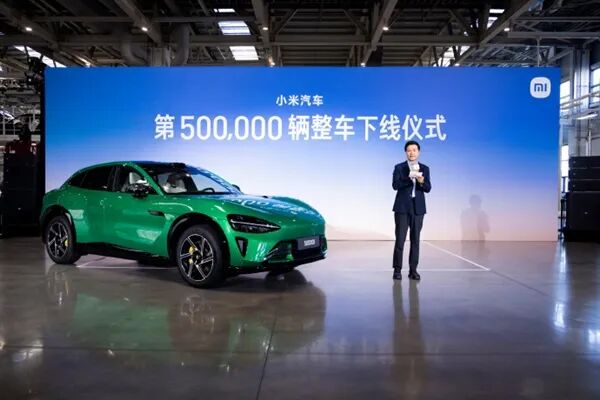Lei Jun Seizes Opportunity, Boosts Stake in Xiaomi!
![]() 11/28 2025
11/28 2025
![]() 572
572

By Wang Xin, Edited by Yang Lingxiao, Produced by Electric New Species
On November 24, Xiaomi Group announced in a Hong Kong Stock Exchange filing that Lei Jun, the founder, chairman, and CEO of Xiaomi Group, made a personal investment exceeding HK$100 million to acquire an additional 2.6 million shares. This move increased his stake in the company to 23.26%.
The market swiftly responded in a positive manner. On the morning of November 25, Xiaomi's share price experienced a surge, climbing over 5% at one point to reach HK$40.72, successfully reclaiming the HK$40 mark.
In the preceding months, Xiaomi's share price had been under pressure, having declined from a year-high of HK$61.45 on June 27. At one stage, the cumulative drop exceeded 35%, resulting in a loss of approximately HK$300 billion in market value.
However, in stark contrast to the share price trend, Xiaomi's performance had been outstanding. It delivered its best-ever third-quarter earnings report, with the automotive business setting industry benchmarks.
More notably, Lei Jun's personal stake increase was not an isolated event. On November 20 and 21, Xiaomi Group had already repurchased shares for two consecutive days, spending a total of over HK$800 million. This year's cumulative buybacks have surpassed HK$2.3 billion, ranking among the highest in Hong Kong's tech sector.
With the company's buybacks and the founder's stake increase, Xiaomi has injected over HK$900 million worth of 'confidence boosters' into the market in just five days.
01 Stake Increase: A Calculated Move Backed by Strong Performance
Lei Jun's bold decision to increase his stake during the share price correction is firmly rooted in Xiaomi's solid fundamentals. Any concerns about the company's development seem unfounded when faced with concrete performance data.
On November 18, Xiaomi released its third-quarter earnings report, revealing revenue of RMB 113.121 billion in Q3 2025. This marks the fourth consecutive quarter where revenue exceeded RMB 100 billion, representing a 22.3% year-on-year increase. The adjusted net profit reached RMB 11.311 billion, up 80.9% year-on-year.
For the first nine months of 2025, revenue reached RMB 340.37 billion, a 32.5% year-on-year increase. The adjusted net profit was RMB 32.817 billion, up 73.5% year-on-year. Such performance is particularly noteworthy amidst global tech sector volatility.
Driving this performance is Xiaomi's core 'Smartphone × AIoT' business. Smartphones, as the foundation, saw shipments of 43.3 million units, ranking among the top three globally for 21 consecutive quarters. This maintains a core position in a fiercely competitive market.

The AIoT business also performed steadily, with multiple product categories leading the market. During the recent Double 11 shopping festival, Xiaomi's total payment volume across channels exceeded RMB 29 billion. Robot vacuum cleaners, cameras, and other categories surpassed RMB 200 million in sales, while air purifiers, power banks, and other categories exceeded RMB 100 million.
Despite the impact of early demand release from national subsidies, these results highlight user recognition of Xiaomi products.

Beyond its core businesses, Xiaomi's innovative ventures have shown explosive growth, revealing the company's future potential. In Q3, revenue from smart electric vehicles and AI-related businesses surged over 199% year-on-year, achieving single-quarter profitability for the first time.
This breakthrough signifies the formation of Xiaomi's second growth curve, opening up entirely new growth prospects.

Beyond performance, Xiaomi's rewards for employees and partners reflect its confidence. On November 19, Xiaomi announced the granting of nearly 29.37 million shares to 3,334 employees and suppliers, valued at approximately HK$1.14 billion.
This approach of sharing development gains stabilizes the core team, strengthens industrial chain collaboration, and lays the foundation for long-term growth.
Lei Jun's stake increase essentially reflects his recognition of the company's true value. When a company's revenue and profits continue to grow, core businesses remain stable, and new businesses rapidly turn profitable, such fundamentals justify a more reasonable valuation.
Short-term market volatility instead presents opportunities for genuine value investors. Lei Jun's move stems from his confidence in this solid foundation.
02 Stake Increase + Buybacks: Dual Signals to Stabilize Market Confidence
In capital markets, founder stake increases and company buybacks are strong signals of confidence.
Xiaomi's rapid implementation of both measures in just five days, with such intensity, fully demonstrates the company's self-assessment of its value and effectively stabilizes investor sentiment.
First, consider the scale of the buybacks. On November 20, Xiaomi repurchased 13.5 million shares, spending over HK$508 million, setting a record for the largest single-day buyback since listing. On November 21, it repurchased another 8 million shares for HK$303 million. Over two days, 21.5 million shares were repurchased, totaling over HK$800 million.
Such a buyback scale is uncommon among Hong Kong tech stocks, reflecting robust cash flow and management's belief that the current share price is undervalued.
The purpose of the repurchased shares is also critical. Xiaomi explicitly stated that some shares would be canceled. This directly boosts earnings per share, enriching the equity of remaining shareholders—the most tangible benefit for investors.
This year, cumulative buybacks have exceeded HK$2.3 billion, demonstrating sustained, long-term confidence rather than short-term market speculation.
Now, consider Lei Jun's personal stake increase. As Xiaomi's founder and CEO, Lei Jun has the most comprehensive understanding of the company's operations and development plans.

His personal investment of over HK$100 million serves as an endorsement, with this 'sharing the fate with the company' stance more persuasive than any elaborate financial report interpretation.
Market reactions confirm this. On the morning of November 25, Xiaomi's share price surged, not only reclaiming the HK$40 psychological threshold but also prompting investors to reevaluate the company's value.
For ordinary investors, these two measures act as a 'confidence booster'.
During prolonged share price declines, investors easily panic. The company and founder demonstrating commitment with real money essentially tells the market, 'We believe in our future.'
This confidence transmission helps stabilize share price trends, guiding the market toward rational valuation.
03 New Business Explosion: The Long-Term Growth Logic Behind the Stake Increase
If performance underpins the stake increase, rapidly emerging new businesses represent Lei Jun's core reason for long-term strategic positioning.
Xiaomi has evolved beyond a mere smartphone company, forming a diversified 'Smartphone + Automotive + AIoT' ecosystem, with this ecological advantage gradually unleashing value.
The most attention-grabbing is undoubtedly Xiaomi's automotive business. On November 20, the 500,000th Xiaomi vehicle rolled off the production line at the Yizhuang Super Factory in Beijing. From the March 2024 launch of the first SU7 model to the 500,000th unit, it took just 602 days (under 20 months), setting a global record for the fastest 500,000-unit production milestone among new energy vehicle (NEV) manufacturers.

Behind this speed lies Xiaomi's comprehensive system capabilities, covering R&D, manufacturing, sales, delivery, and service.
Xiaomi's automotive market performance is equally impressive. As of October this year, the Xiaomi SU7 ranked first in domestic mid-to-large sedan sales, while the YU7 topped mid-to-large SUV sales for three consecutive months, even ranking first in domestic all-category SUV sales in October.
In Q3, Xiaomi delivered over 100,000 vehicles in a single quarter, a record high, with cumulative deliveries exceeding 260,000 in the first nine months, surpassing the annual target of 350,000 units ahead of schedule. Lei Jun also revealed plans to deliver over 400,000 units in 2025.
More critically, the automotive business has turned profitable. In Q3, smart electric vehicle revenue reached RMB 28.3 billion, with related businesses achieving positive single-quarter operating income for the first time.
This means the automotive business is no longer a mere investment sink but a significant profit growth driver for Xiaomi.
Achieving scalable delivery and profitability so rapidly is extremely rare in the industry for a new NEV player.
Xiaomi's automotive success has also driven industrial chain upgrades. The Xiaomi Auto Factory houses over 1,100 production robots, secured nearly 100 advanced manufacturing patents by 2025, and completed 35 technological upgrades.
This intelligent manufacturing capability not only enhances production efficiency and product quality but also sets benchmarks for upstream and downstream enterprises, advancing the entire NEV industrial chain.

Beyond automotive, AI businesses are also growing rapidly. In Q3, AI-related revenue surged year-on-year, forming an innovative business segment alongside automotive.
AI technology applications not only enhance user experiences for smartphones and vehicles but also empower IoT devices, making the entire ecosystem more intelligent and interconnected.
This 'multi-engine' model significantly boosts Xiaomi's risk resilience. The smartphone business provides stable cash flow and user base, AIoT enriches the product matrix, while automotive and AI businesses drive explosive growth. Mutual synergy among different businesses creates a 1+1>2 effect.
Lei Jun's stake increase reflects his recognition of this long-term growth potential. As a trillion-dollar market entrant, the automotive business has achieved initial success with ample room for future growth; continuous AI empowerment will enhance product competitiveness; while the 'Smartphone × AIoT' foundation will solidly support new business development.
This diversified and synergistic ecological layout makes Xiaomi's future highly imaginative, rendering the founder's long-term holding particularly visionary.
Conclusion: Lei Jun Bets on Xiaomi Ecosystem's Long-Term Potential
Lei Jun's investment of over HK$100 million to increase his stake in Xiaomi is a result of the company's solid fundamentals, business potential, and market confidence.
This stake increase, combined with the company's over HK$800 million in buybacks, forms a HK$900 million 'confidence combination' in just five days, successfully driving share price rebounds and prompting the market to rediscover Xiaomi's true value.
Behind this lies concrete performance. Xiaomi's Q3 revenue exceeded RMB 100 billion for four consecutive quarters, with net profit hitting a record high. The 'Smartphone × AIoT' core business grew steadily, Double 11 sales surpassed RMB 29 billion again, and core business stability laid the foundation for development.
The automotive business's explosive growth became the biggest highlight, achieving 500,000-unit production in under 20 months, rapidly reaching scalable delivery and profitability, and breaking the company's growth ceiling.
Short-term share price volatility is normal in capital markets, but a company's value is ultimately determined by performance and potential.
Xiaomi has proven its worth through solid results, rapidly growing new businesses, and sincere market engagement.
Lei Jun's HK$100 million stake increase not only 'validates' the current share price but also represents a firm bet on Xiaomi's future.








